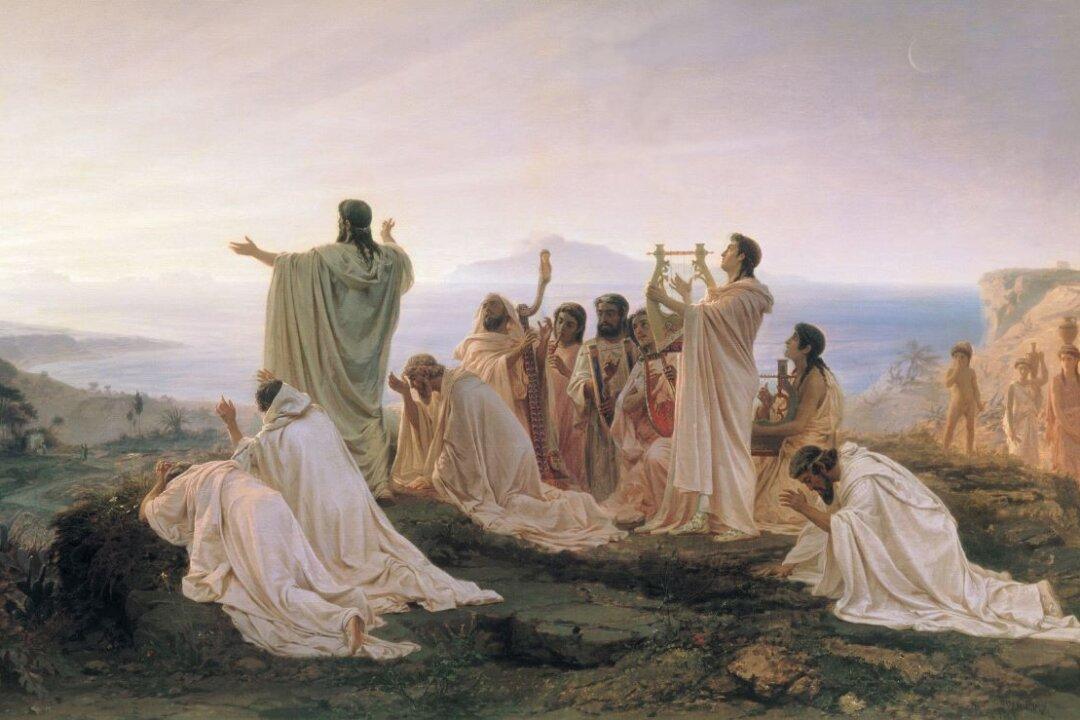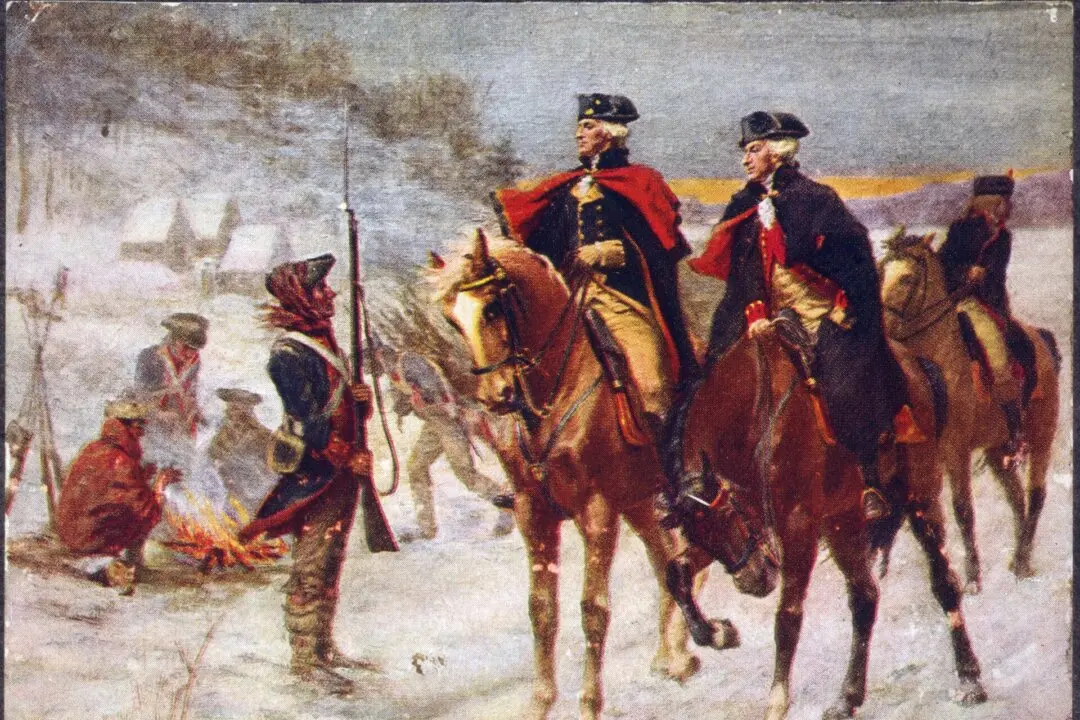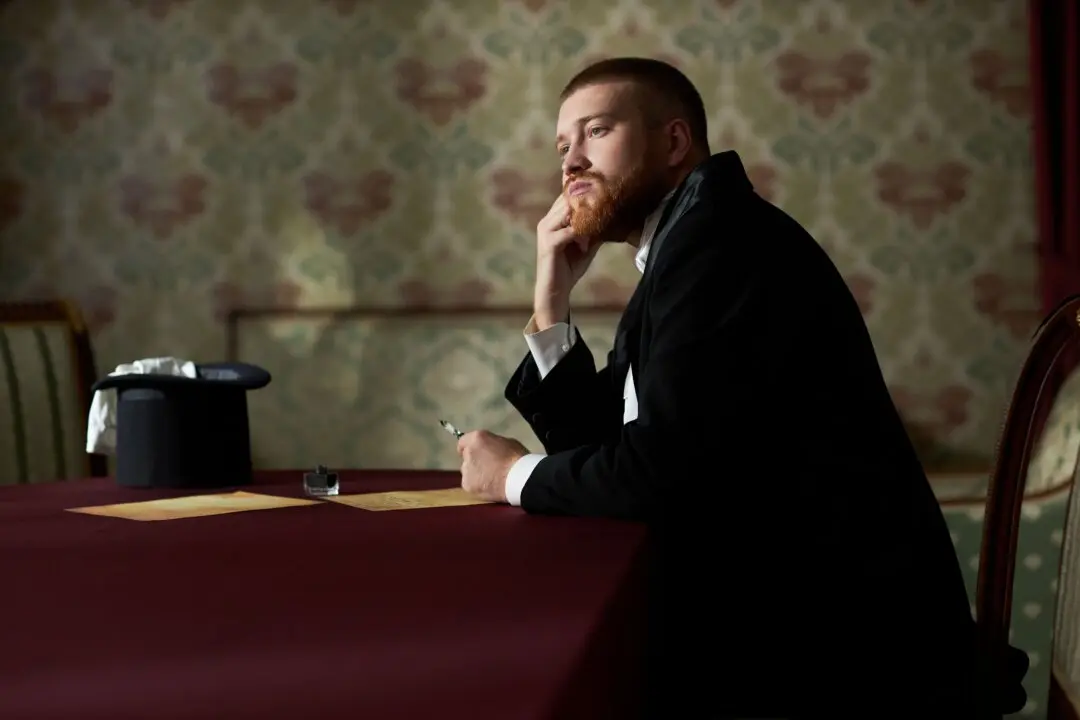Johann Wolfgang von Goethe is often called “the German Shakespeare,” though in many ways he was more of a Leonardo. In addition to writing literary masterpieces in every genre, he made scientific contributions to the fields of geology, anatomy, optics, and botany. He was also a painter, diplomat, and government administrator who never wanted for love or friendship. How could one human being achieve so many blessings? The short answer: Charisma helps. But the longer answer involves, surprisingly, art.
Destined for Greatness
Goethe was born in 1749. His prominent family’s coat of arms was the lyre, symbol of wisdom and the arts. His father appointed private tutors to teach him literature, languages, painting, music, and science, as well as riding and fencing. As a boy, Goethe composed poems and plays. His first novel, “The Sorrows of Young Werther,” brought him international success in his 20s. Following this, the Duke of Weimar invited him to court. They got along so well that Goethe soon found himself managing the duke’s practical affairs. Though he enjoyed applying his talents, Goethe’s artistic output waned.Feeling overwhelmed by his responsibilities, he absconded to Italy for two years in 1786. He clamored over Roman ruins and saw famous works of Renaissance art, keeping a diary that he would draw on to write his “Italian Journey,” an early travelogue. He was so inspired by his travels, he wrote the duke, that he promised to return a changed man.





